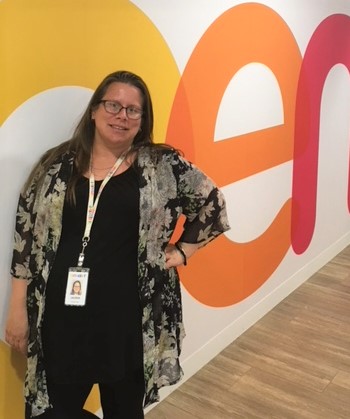A team approach to functional families
For families who have experienced a traumatic event or family situation, and have a history of contact with child protective services, it can be difficult to rebuild relationships and trust.
But there is help to put the pieces back together. Programs like Functional Family Therapy-Child Welfare (FFT-CW) take a team approach to support families to stay connected.
Lauren Ayers is an FFT-CW practitioner in South East Sydney and explains families joining the voluntary program are referred by the Department of Communities & Justice.
“FFT practitioners are often walking alongside families during the most trying times in their lives. The referral has often been made because of a traumatic event that has resulted in the concern for the child or young person’s safety - families can be distrustful and scared of people promising to help them make change in their lives,” she says.
“Everything we do is about supporting the entire family - without judgement - to build a foundation of acceptance and respect.”

Lauren Ayres - FFT-CW Practitioner
How does the FFT-CW model work?
The FFT-CW model focuses on:
- Reducing negativity
- Reducing blame
- Building a balanced alliance with family members and key relationships
- Building hope
- Changing focus
Change looks different for every family. The core of FFT-CW is a focus on assessment and intervention to address risk and protective factors.
Participants are supported to make changes that help the family adapt and function in ways that mesh with family values and cut down on unacceptable behaviour; with the overall aim of reducing the number of children entering the out of home care system.
What does FFT-CW look like for families?
FFT-CW practitioners like Lauren visit families in their own environment, on a weekly basis.
“We spend up to 9 months working as a support team for the family as a whole. It’s important to stay flexible, respectful and consistent to build the trust we need to show our support comes without judgement.”
Home sessions can include assessing and intervening with child safety, health and wellbeing services, individual or group therapy sessions, and finding common ground to build the strength of the family foundations and relationships.
Supporting the team behind the scenes
Lauren says communication with the FFT-CW team supporting a family together can be just as important as connecting with the family themselves.
“We have regular opportunities to discuss what is going on for us and our families and use group supervision to generate ideas for how we can best support the people we are working with.
Lauren says the FFT-CW model is supportive of the practitioners as well as families and provides structured, regular consultation sessions with an assigned external consultant who completes clinical ratings based on the practitioners’ adherence to the model.
“Training in the model is essential - and it’s followed up with fortnightly clinical and individual support for practitioners as part of the FFT-CW team. The level of support means we can reach for the outcomes every family deserves.”
For Lauren, who came from an internal support coordination role, it was a leap of faith to learn and apply a new model for family care.
“I’m proud of the outcomes my families have achieved - the FFT model has made a big impact.”